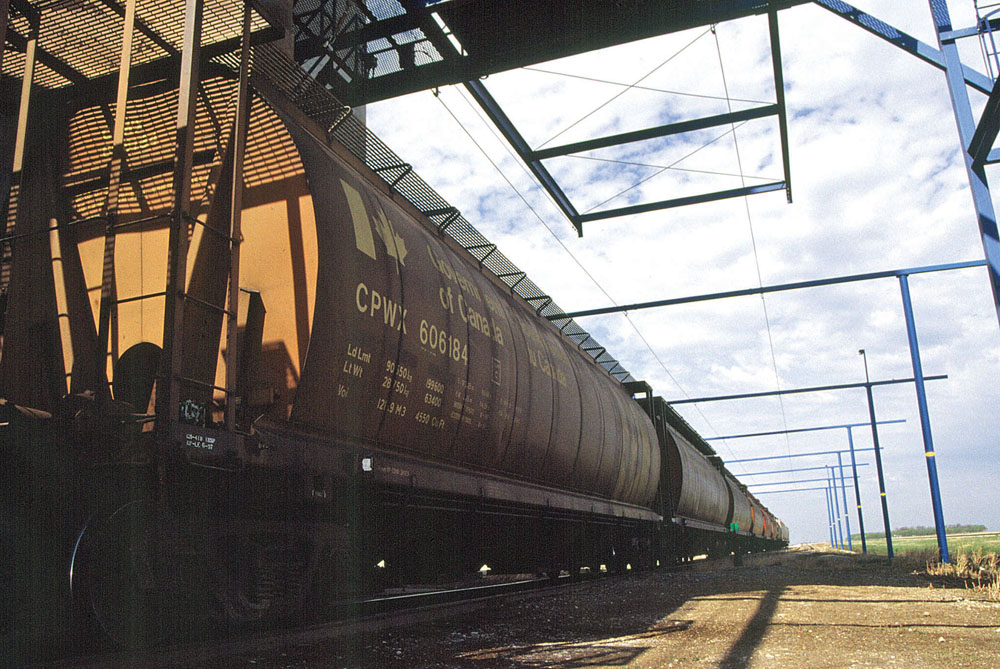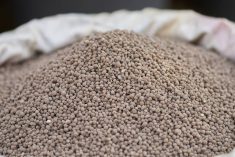Poor conditions at harvest have been good for Western Canada’s crushers, which are soaking up canola that would otherwise be hard to market.
Weekly canola crush levels hit a record high of just over 200,000 tonnes the first week in January for the second time ever.
While crush levels dipped the following week, the total crush as of Jan. 11 was 4.12 million tonnes versus 3.64 million tonnes a year earlier. That’s a sizzling 14.4 per cent jump over the record-setting 8.3-million-tonne crush set just last year (which smashed the old record, set in 2014-15 by nearly a million tonnes).
The rate at which crushers are roaring ahead is proof positive of the “strong demand for canola oil around the world,” said Alberta Canola general manager Ward Toma.
The poor condition of this year’s crop is also a major factor.

“They don’t want to move it into the seed export system because you can’t risk it going bad in a boat or a big terminal, so it’s available for the crushers to use,” said Toma.
A high proportion of Alberta’s canola crop came off in poor condition during the wet fall, and there have been “a lot of reports of storage problems.” But the situation would be much worse if there wasn’t the option to sell to crushers, he said.
“You can sell the product out rather than have it go bad in your bin if it’s in risky condition,” said Toma. “Producers are able to get it out of storage and off the farm, which is a benefit in and of itself.
“You have a bunch of canola on your farm that could go bad quickly because it’s in poor quality, so the ability to move it — even at existing prices… is a benefit to the farmer.”
Sexsmith-area farmer Greg Sears is glad to see that domestic crushers are “on a good run” — an estimated $116 per tonne above the nearby futures in early January, compared to just $73 a year earlier.

“The crushers have very good margins right now — there’s a lot of canola available to crush in Western Canada, and there’s obviously a good market for the product,” said Sears, who is also chair of the Alberta Canola board.
“We know we’ve got a substantial canola crop this year, and it’s good to see a high rate of disappearance, both with the domestic crushers and the export seed market.”
‘Basis should narrow’
Aside from the short-term benefits of moving some crop off the farm, producers will benefit in the long run from this strong demand, even without premium prices, said Sears.
“Any time we have a situation where we have a good market for export on the unprocessed seed and a good domestic market for domestic processing, it’s a good sign the industry is healthy,” he said.
Read Also

Half a million plots and a lifetime of impact: Dr. Brian Beres wins Orville Yanke Award
The renowned Alberta scientist celebrated three decades of agricultural innovation and the pioneering of the GEM framework at the 2026 Farming Smarter Conference.
“There’s obviously a good demand, and ultimately, the basis should narrow and the markets should be maintained or improved as far as what the producers see at the farm gate.”
Good crush margins also encourage the industry to invest in more domestic capacity, he added. As of mid-January, crush plants were running at 89.3 per cent of capacity (versus 83.1 per cent a year ago).
“They’re certainly running at a high utilization, and I don’t think there’s a whole lot more room in the immediate future for them to take more product,” said Sears. “But in the long term, if there’s still demand and the capability is still there from the producers to supply the product, they’ll be able to expand.”
That’s critical for the future growth of the industry.
“Those two forces are kept in balance, and that’s what ensures the producer gets the best price for the product,” said Sears. “Any time we see one or the other in tough times, that makes it harder for producers to sell the product for the best value.”
It also provides producers “a bit more marketing options globally,” added Toma.
“It’s another participant in the marketplace for farmers to have. You have crushers bidding, so you’re not just tied to the seed export market,” he said.
“If something happens in the seed export market, we can move product through as oil or meal. We can differentiate those marketplaces. It provides more choice and more competition.”
— With files from Commodity New Service Canada















